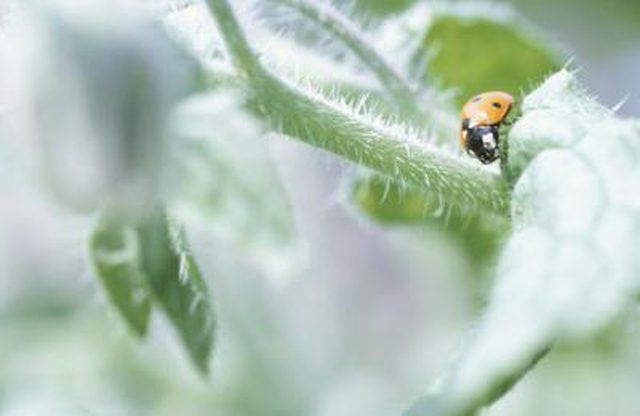Bulbs
Flower Basics
Flower Beds & Specialty Gardens
Flower Garden
Garden Furniture
Garden Gnomes
Garden Seeds
Garden Sheds
Garden Statues
Garden Tools & Supplies
Gardening Basics
Green & Organic
Groundcovers & Vines
Growing Annuals
Growing Basil
Growing Beans
Growing Berries
Growing Blueberries
Growing Cactus
Growing Corn
Growing Cotton
Growing Edibles
Growing Flowers
Growing Garlic
Growing Grapes
Growing Grass
Growing Herbs
Growing Jasmine
Growing Mint
Growing Mushrooms
Orchids
Growing Peanuts
Growing Perennials
Growing Plants
Growing Rosemary
Growing Roses
Growing Strawberries
Growing Sunflowers
Growing Thyme
Growing Tomatoes
Growing Tulips
Growing Vegetables
Herb Basics
Herb Garden
Indoor Growing
Landscaping Basics
Landscaping Patios
Landscaping Plants
Landscaping Shrubs
Landscaping Trees
Landscaping Walks & Pathways
Lawn Basics
Lawn Maintenance
Lawn Mowers
Lawn Ornaments
Lawn Planting
Lawn Tools
Outdoor Growing
Overall Landscape Planning
Pests, Weeds & Problems
Plant Basics
Rock Garden
Rose Garden
Shrubs
Soil
Specialty Gardens
Trees
Vegetable Garden
Yard Maintenance
Controlling Whiteflies Naturally With Citrus
Controlling Whiteflies Naturally With Citrus. Whiteflies are a family of small, sap-drinking pests, consisting of more than 1,500 species. Citrus plants attract whiteflies and often suffer direct damage from their feeding. Whiteflies also carry many diseases that damage and kill plants. Natural methods are best for controlling whiteflies, as they...

Whiteflies are a family of small, sap-drinking pests, consisting of more than 1,500 species. Citrus plants attract whiteflies and often suffer direct damage from their feeding. Whiteflies also carry many diseases that damage and kill plants. Natural methods are best for controlling whiteflies, as they quickly develop resistance to chemical insecticides. In addition, using an insecticide might allow whiteflies to thrive by killing their natural predators. Utilizing biological methods, alongside a few simple tricks, can help eliminate whiteflies from your citrus plant.
Things You'll Need
Glue traps
Vacuum
Spray bottle
Garlic oil
Live Encarsia formosa, also known as parasitic wasps
Live Coccinellidae, also known as ladybugs
Chrysopidae eggs, also known as lacewings
Isolate whitefly-infested plants to prevent the pests from spreading. Place them as far away from other plants as possible. If you cannot isolate the affected citrus, you must regularly inspect and treat all plants in the vicinity.
Place one to three glue traps around each citrus plant affected by whiteflies. The glue traps catch any whiteflies that land on them. Replace a glue trap when more than 75 percent of its surface is covered in whiteflies.
Remove whiteflies from the leaves and fruit of infested citrus plants with a vacuum hose each morning. Whiteflies are slow moving in the morning and not likely to escape. To kill the vacuumed whiteflies, encase the bag or dust compartment in plastic wrap and freeze it for 24 hours. Discard the dead whiteflies.
Fill a spray bottle with garlic oil and coat both sides of the citrus plantsí leaves in a thin layer. Garlic oil kills young whiteflies, known as nymphs. Spray the leaves with garlic oil once daily until the infestation has subsided.
Release live parasitic wasps to kill the whitefly population. The female wasps lay eggs inside of young whiteflies, but they are no threat to humans or pets. Within 10 days, the eggs hatch and kill the whiteflies. While some of the Encarsia formosa might get stuck to traps, they are available for purchase in quantities of 1,000 or more. Release at least 100 Encarsia formosa per infested citrus plant, once weekly, until the infestation subsides.
Release at least 50 live ladybugs for each infested plant once every other week until the infestation subsides. Ladybugs feed on young whiteflies, helping to eliminate their population.
Place about 200 lacewing eggs near each infested citrus plant to control the whitefly population. The hatched lacewing larvae must feed voraciously to grow. They eliminate whitefly young, preventing the infestation from spreading.
Tips & Warnings
Some plants deter whitefly infestations or attract parasitic wasps, ladybugs and lacewings to the area. Consult your local plant nursery for species
recommendations that grow well in your United States Department of Agriculture plant hardiness zone. Placing these species around your citrus plants can help control the whitefly infestation.
Supplies required to control whiteflies are available from most plant nurseries.
Introducing parasitic wasps, ladybugs or lacewings is beneficial to most planting environments. However, you should check local regulations to ensure bringing these species to your area is permitted.